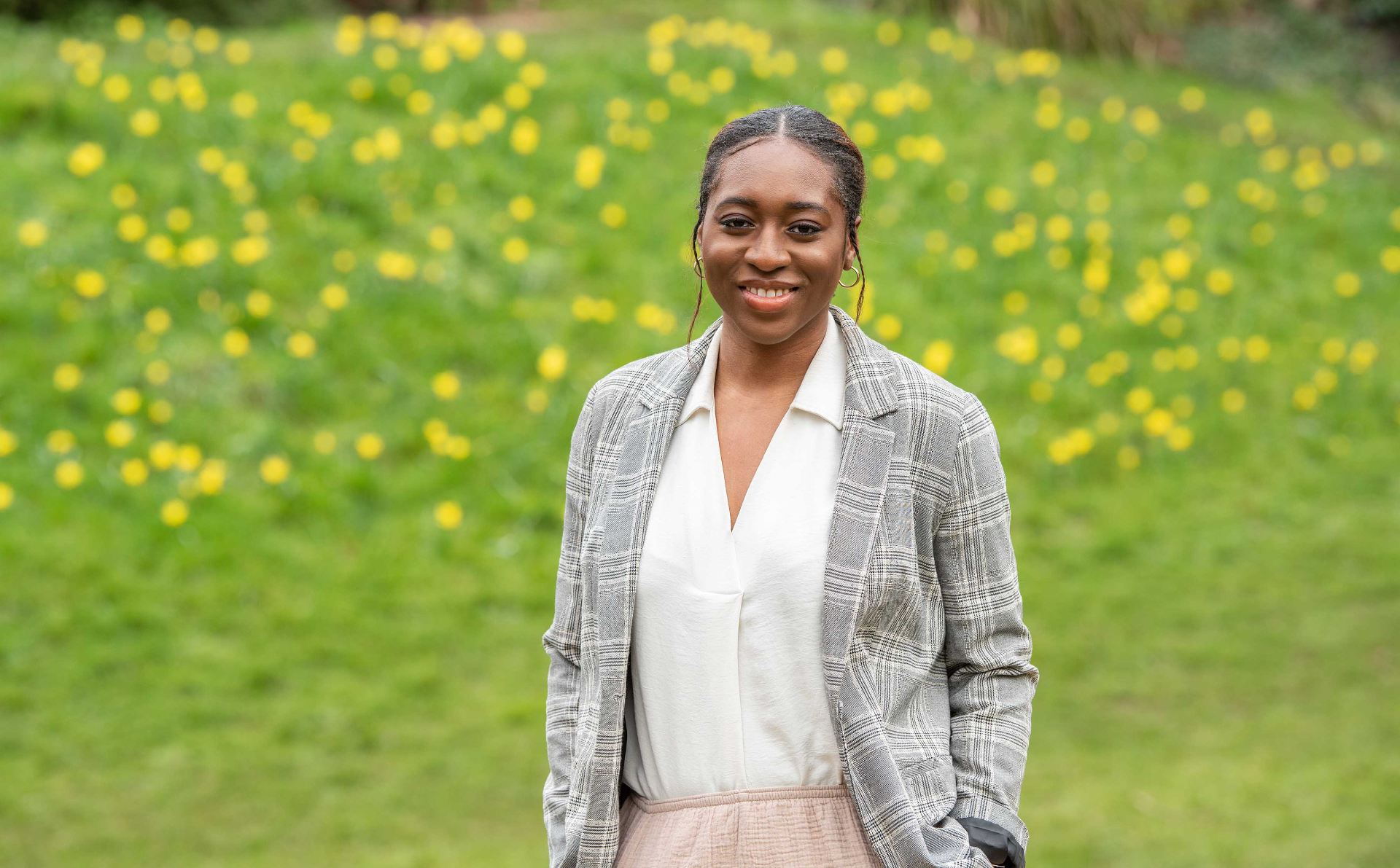
MSc student Enna discusses global environmental challenges and shares how Opportunity Bristol funding supports diversity in research.
I decided to do a master’s in Global Development and Environment to advance my career. I work in sustainability on carbon emissions, environmental programmes and action planning. I began to notice that a degree in environmental studies or sustainability was increasingly becoming a prerequisite for advancement. The sustainability sector also has quite low diversity, so these factors combined to create a sense of urgency in me.
The Black Bristol Scholarship has meant I don’t have to worry as much about money. I can focus on my studies and develop my practice and think about the impact I want to have. Black students are more likely to be economically marginalised, which can shut them out of master’s programmes. The Opportunity Bristol scholarship gives students the choice to pursue an advanced degree.
I have just submitted my research proposal, which focuses on textiles and textile waste, specifically exploring the practice of sending waste to the Global South. I am interested in connecting sustainability on an international scale, particularly in West Africa. I’m focusing my research on Ghana and looking at how environmental issues connect with development issues. In this research, I am thinking more deeply about spatial fixes – the exporting of problems from one place to another. Textile waste in England, for example, can be seen as something that should be sent away to Ghana, rather than us dealing with our own overconsumption in the UK.
The scholarship programme also funds international research. I can apply for funding to travel and as my work is focused on Ghana, I am planning to go there in the summer for my dissertation. I am first generation Nigerian British, so for me and for other Black students who may be a few generations removed from their homelands, there are deep connections that exist outside of the UK. These international connections create an interesting position for a scholar in terms of producing research and allows an added subjectivity in your research and career.
This course has really changed my world. It has introduced me to so many theories and research that is not readily available. It’s been curated in a way that encourages you to transform your thinking. After I finish my master’s, I plan to continue working in the sustainability sector, ideally in the circular economy, such as textile waste, or in policy and regulation. I want to work where there’s an opportunity to transform the current order.
Thank you for enabling me to have this experience by supporting my scholarship. The goal of recruiting more Black students is important and I hope the Black Bristol Scholarship programme can continue and expand.
For more information on the Black Bristol Scholarship, click here.
